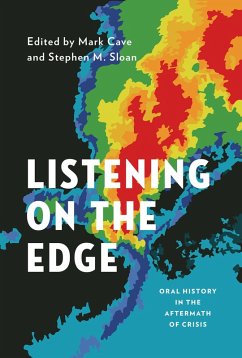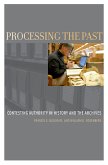From the headlines of local newspapers to the coverage of major media outlets, scenes of war, natural disaster, political revolution and ethnic repression greet readers and viewers at every turn. What we often fail to grasp, however, despite numerous treatments of events is the deep meaning and broader significance of crisis and disaster. The complexity and texture of these situations are most evident in the broader personal stories of those whom the events impact most intimately. Oral history, with its focus on listening and collaborative creation with participants, has emerged as a forceful approach to exploring the human experience of crisis. Despite the recent growth of crisis oral history fieldwork, there has been little formal discussion of the process and meaning of utilizing oral history in these environments. Oral history research takes on special dimensions when working in highly charged situations often in close proximity to traumatic events. The emergent inclination for oral historians to respond to document crisis calls for a shared conversation among scholars as to what we have learned from crisis work so far. This dialogue, at the heart of this collection of oral history excerpts and essays, reveals new layers of the work of the oral historian. From the perspective of crisis and disaster oral history, the book addresses both the ways in which we think about the craft of oral hsitory, and the manner in which we use it. The book presents excerpts from oral histories done after twelve world crises, followed by critical analyses by the interviewers. Additional analytical chapters set the interviews in the contexts of pyschoanalysis and oral history methodology.
Dieser Download kann aus rechtlichen Gründen nur mit Rechnungsadresse in A, B, BG, CY, CZ, D, DK, EW, E, FIN, F, GR, HR, H, IRL, I, LT, L, LR, M, NL, PL, P, R, S, SLO, SK ausgeliefert werden.









